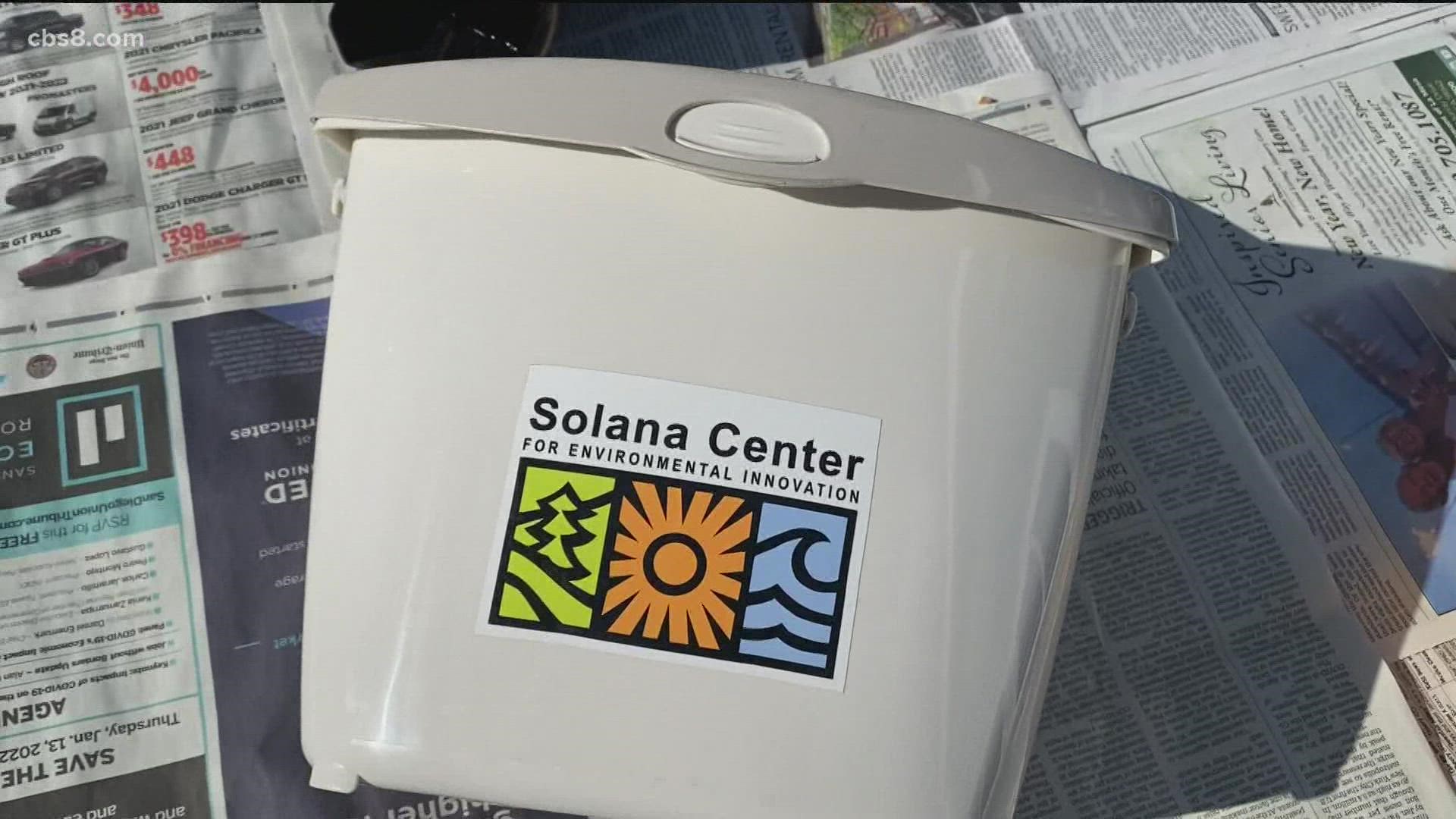SAN DIEGO COUNTY, Calif. — California's new organic waste recycling law went into effect January 1, 2022, but residents across the county still have a lot of questions.
Here are answers to some of the most common ones:
What am I supposed to put in the bin?
Food waste, food-soiled paper towels and napkins. Yard trimmings and non-hazardous wood waste will also go into the green bins.
I live in the city of San Diego, but I don’t have a green bin yet. What am I supposed to do?
The city of San Diego has been granted an extension from the state so that it can have more time to hire drivers, buy trucks, and get bins out to residents. As a result, the program is not scheduled to officially start in San Diego until the summer of 2022.
I live in an apartment/condo complex. Do I have to follow the new law?
Yes. Apartment and condominium complexes are not exempt. Unfortunately, most of them rely on private trash companies that will most likely raise rates to make this extra pick-up.
Won’t this cause flies or odors in my kitchen?
Many agencies will be providing residents with buckets for their kitchen that vent moisture to prevent odor-causing bacteria from growing. The buckets wash easily with soap and water and have locking lids that prevent flies from getting inside. Most people will need to empty their buckets into their green bin every 2 to 3 days.
What happens if I don’t participate?
Several agencies tell CBS 8 that the program's first two years will be spent educating the public on the new law. After that, “trash police” will go out and check bins and can issue fines to those still not recycling organic waste.
Why is this law necessary?
Organic waste rotting in our landfills creates methane, a toxic greenhouse gas. By recycling, the waste can be used for composting. Some companies are converting it into fuel for their vehicles.
WATCH RELATED: California's new food waste recycling law: What you need to know (January 2022)

